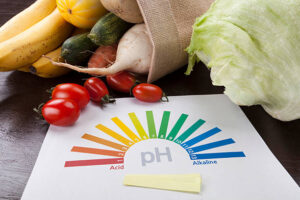Food-grade disodium citrate, also known as sodium citrate dihydrate or Na2C6H6O7·2H2O, is a white crystalline powder that is an odorless and slightly hygroscopic compound. Its molecular weight is 294.10 g/mol, and its chemical formula is Na2C6H6O7·2H2O.
 Food-grade disodium citrate is commonly used as a food additive and preservative due to its ability to control acidity levels in food products. It is generally recognized as safe (GRAS) by the United States Food and Drug Administration (FDA) when used in accordance with good manufacturing practices.
Food-grade disodium citrate is commonly used as a food additive and preservative due to its ability to control acidity levels in food products. It is generally recognized as safe (GRAS) by the United States Food and Drug Administration (FDA) when used in accordance with good manufacturing practices.
Some of the specifications for food-grade disodium citrate include:
Assay: 99.0% to 100.5%
Identification: Passes test
pH (1% solution): 7.5 to 9.0
Chloride (Cl): ≤ 50 ppm
Sulfate (SO4): ≤ 150 ppm
Heavy metals (Pb): ≤ 10 ppm
Loss on drying: 11.0% to 13.0%
Organic volatile impurities: Meets requirements
The potential customers of food-grade disodium citrate include:
Food and beverage manufacturers: Disodium citrate is commonly used as an acidity regulator, emulsifier, and flavoring agent in various food and beverage products such as soft drinks, energy drinks, jams, jellies, dairy products, and processed meats.
Pharmaceutical companies: Disodium citrate is also used as a buffering agent and excipient in pharmaceutical products such as tablets, capsules, and syrups.
Cosmetics companies: Disodium citrate is used as a pH adjuster and chelating agent in cosmetics and personal care products such as shampoos, conditioners, and skin cleansers.
Chemical companies: Disodium citrate is used as a reagent in various chemical reactions and as a component of some detergents and cleaning agents.
Overall, any industry that requires a safe and effective acid regulator may be a potential customer for food-grade disodium citrate.




